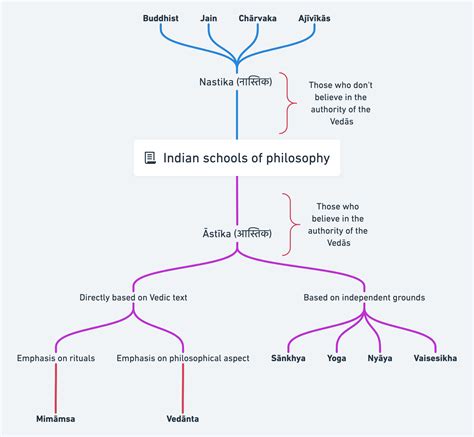Exploring Yoga’s Integral Role in Shaping Modern Philosophical Thought
Yoga, an ancient practice rooted in Indian tradition, has gained global recognition not only for its physical benefits but also for its profound philosophical implications. While many associate yoga with physical postures and breathing techniques, it also serves as a powerful tool for addressing deep existential questions and shaping the contemporary philosophical landscape. In recent years, yoga’s integration into modern philosophical discourse has prompted a broader conversation about the nature of mind, body, and spirit, and how these elements intertwine with ethical and metaphysical inquiry.
In this article, we will explore yoga’s influence on modern philosophical thinking, examining its core principles and how they intersect with contemporary intellectual debates. The article will be a comprehensive analysis covering key concepts, historical contexts, current implications, practical applications, and much more. Through an interdisciplinary lens, we will uncover the myriad ways yoga has informed philosophical thought in the modern era, focusing on areas such as ethics, epistemology, metaphysics, and even socio-political philosophy.
Key Concepts: Defining Yoga in Philosophical Context
To begin, it is crucial to define what we mean by “yoga” within the philosophical discourse. Yoga is traditionally understood as the path toward spiritual liberation and self-realization, encompassing disciplines that unify the mind, body, and spirit. Central to yoga are concepts such as meditation (dhyana), discipline (tapas), self-study (svadhyaya), and devotion (bhakti), all aimed at transcending the ego and achieving a state of oneness with the universe.
- Yoga and Self-Realization: In modern philosophical thinking, yoga is often aligned with the pursuit of self-knowledge or the “know thyself” concept that Socrates championed. It offers a practical method for introspection, integrating inner awareness with intellectual reflection.
- Mind-Body Connection: The physical postures (asanas) in yoga are not merely exercise; they are tools to achieve mental clarity and emotional balance, thus linking mind and body in ways that resonate with contemporary philosophical inquiries about mind-body dualism.
- Non-Duality: Advaita Vedanta, a key philosophical school in yoga, promotes the idea that there is no ultimate separation between the individual self (Atman) and the universal consciousness (Brahman). This resonates with modern discussions on non-dualism in both Eastern and Western philosophies.
Historical Context: Yoga’s Evolution in Philosophical Thought
Yoga’s philosophical roots stretch back over 2,000 years to ancient India. The earliest texts on yoga, the Upanishads and the Bhagavad Gita, offered foundational perspectives on the nature of the self, reality, and the cosmos. However, yoga’s evolution within the broader philosophical tradition—particularly in its intersection with Western thought—has played a significant role in shaping its modern interpretation.
- Classical Yoga Texts: The Yoga Sutras of Patanjali, written around the 2nd century BCE, are critical in understanding the systematic approach to yoga as a means of mental discipline and spiritual liberation. They emphasize the importance of mental control (yama and niyama) and the ultimate goal of samadhi (union with the divine).
- Western Interest: Yoga began influencing Western thought in the 19th century, with figures such as Swami Vivekananda bringing yogic philosophy to the United States and Europe. His teachings introduced ideas like universalism and the interdependence of all religious traditions, which resonated with Enlightenment-era ideals of rationalism and individualism.
- Modern Integrations: Today, yoga is increasingly integrated into the global philosophical discourse, influencing not just metaphysical or spiritual discussions, but also practical ethics, social justice movements, and even environmental philosophy.
Current State Analysis: Yoga’s Role in Contemporary Philosophical Thought
In the 21st century, yoga has transcended its traditional roots to become a symbol of holistic living. Contemporary philosophers, ethicists, and psychologists alike are drawing on yogic principles to address modern existential challenges, particularly around mental health, consciousness, and personal well-being.
- Yoga and Existential Philosophy: Existential philosophers like Jean-Paul Sartre and Martin Heidegger, who emphasized human freedom, individual choice, and the quest for meaning in an often indifferent universe, find resonance with yoga’s emphasis on personal responsibility and self-awareness. Yoga’s tools for inner reflection provide practical methods for confronting existential dread.
- Mindfulness and Cognitive Science: The widespread popularity of mindfulness meditation, rooted in yogic practice, has become a staple in modern cognitive science and psychology. This aligns with ongoing discussions in philosophy of mind, where thinkers are investigating the nature of consciousness and self-awareness.
- Social and Political Dimensions: Modern philosophers are also exploring how yoga’s ethical teachings can inform issues like social justice, environmentalism, and political responsibility. The principle of ahimsa (non-violence) advocates for the interconnectedness of all beings, which has informed movements advocating for global environmental sustainability and human rights.
Practical Applications: Yoga as a Tool for Philosophical Inquiry
The practical applications of yoga in philosophical inquiry are vast and multidimensional. As modern thinkers turn toward holistic approaches to addressing the mind, body, and spirit, yoga offers actionable insights that extend beyond the mat and into the realm of everyday life.
- Integrating Yoga into Philosophical Practice: Yoga provides a direct, embodied experience that complements intellectual reasoning. Philosophers and thinkers can use yoga to achieve the mental clarity needed to resolve complex questions. This can lead to a more integrated approach to ethics, metaphysics, and epistemology.
- Yoga and Ethical Living: The yamas and niyamas—guidelines for ethical living—provide a framework for approaching modern moral dilemmas. Philosophers are increasingly examining how these ancient principles align with modern ethical concerns such as animal rights, social justice, and personal well-being.
- Yoga for Mental Health: As the world faces growing mental health challenges, yoga offers a practical solution for fostering emotional resilience, mindfulness, and psychological balance. Philosophers, too, are exploring the therapeutic benefits of yoga as a form of existential therapy, helping individuals come to terms with their mortality and existential concerns.
Case Studies: Yoga’s Impact on Philosophical Practice
| Case Study | Focus | Impact on Philosophy |
|---|---|---|
| Swami Vivekananda’s Teachings in the West | Introduction of yogic philosophy to the West | Promoted the integration of spirituality and rationalism in Western thought, influencing the New Thought movement. |
| Yoga and Cognitive Behavioral Therapy | Application of mindfulness and yoga in mental health treatment | Demonstrated how ancient practices can enhance modern therapeutic methods, influencing philosophical ideas around the mind-body connection. |
| The Rise of Eco-Spirituality | Connection between yoga, environmentalism, and social justice | Yoga’s ethical principles inspire eco-spirituality, shaping modern environmental philosophy by linking personal well-being to ecological health. |
Stakeholder Analysis: Who Benefits from Yoga’s Philosophical Integration?
The integration of yoga into modern philosophical discourse has far-reaching implications, benefiting a wide range of stakeholders.
- Philosophers: Yoga provides philosophers with tools for introspection and practical ethics, offering a more holistic approach to addressing questions of meaning, morality, and existence.
- Healthcare Professionals: Doctors, therapists, and mental health professionals are increasingly integrating yoga into therapeutic practices, recognizing its profound impact on psychological well-being.
- Educators: Yoga’s application in education fosters a more mindful, focused approach to learning, helping students develop emotional intelligence and resilience.
- Environmentalists: Yoga’s ethical principles of interconnectedness and non-violence resonate with environmental philosophies advocating for ecological sustainability and global responsibility.
Implementation Guidelines: Practical Steps for Incorporating Yoga into Philosophical Inquiry
Incorporating yoga into philosophical practice requires a systematic approach that integrates both theoretical understanding and practical application. Here are some key implementation guidelines:
- Begin with Personal Practice: To understand the philosophical implications of yoga, philosophers must first engage in personal practice. This includes adopting meditation, yoga postures, and mindfulness as daily disciplines.
- Integrate Ethical Principles: Philosophers should adopt and apply the yamas and niyamas as ethical guidelines for their personal and professional lives, using them as tools to navigate moral dilemmas.
- Collaborate Across Disciplines: Philosophy, psychology, cognitive science, and even sociology








